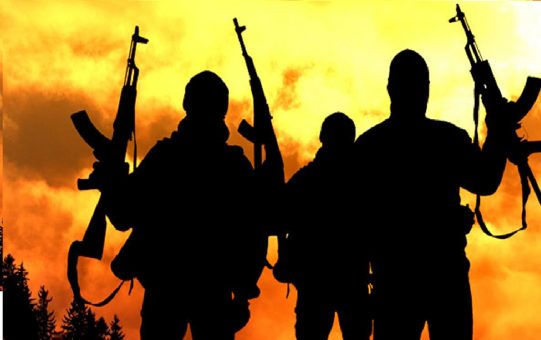Nigeria is once again plunged into mourning following a barbaric attack on Yelewata and Daudu communities in Guma Local Government Area (LGA) of Benue State, where about 200 persons, including children, women, and security personnel, were killed in a coordinated assault by suspected terrorist herdsmen.
The bloody onslaught, which unfolded late Friday night, has left families devastated, homes burned to ashes, and Internally Displaced Persons (IDPs) slaughtered in their makeshift shelters.
According to community leader and former acting SUBEB Chairman, Mr. Matthew Mnyan, the attack began at 11 p.m., with the terrorists launching an assault on Yelewata from two flanks—west and east—catching local youths and stationed police officers off guard. Despite a valiant effort to resist the attackers, the defenders were eventually overwhelmed.
“They poured petrol on the stalls where IDPs had taken refuge and set them ablaze. Entire families—fathers, mothers, children—were burned alive. Some were slaughtered like animals,” Mr. Mnyan said, holding back tears.
“We counted up to 200 casualties so far, including a family of 15. Some bodies were burned beyond recognition. Over 46 injured were rushed to hospitals, and at least 20 of them have died.”
The horror extended to Daudu, where another wave of assailants attempted to strike but met fierce resistance from security operatives and community youths. Despite their efforts, at least five security personnel, including a Captain, reportedly lost their lives in the ambush.
"They Want to Grab Our Land" – Locals Cry Out
Mr. Mnyan and other residents believe the attack was premeditated and land-driven. They alleged that Fulani herdsmen had already taken over the eastern side of Yelewata, farming on seized land and barring indigenes from returning.
“This was a planned takeover, a calculated effort to wipe us out. We had received intelligence that over 300 terrorists were camped near Daudu, and multiple communities were marked for attack,” Mnyan stated.
“What’s worse, we believe soldiers stationed nearby failed to intervene while our people were being butchered.”
Overwhelming Loss for IDPs
According to Chief Dennis Gbongbon, President of the Association of United Farmers Benue Valley (AUFBV), over 62 IDPs and farmers were confirmed dead as at Saturday afternoon, with dozens still unaccounted for as rescue efforts continue.
“The victims were mostly IDPs who had earlier fled from Antsa, Kadarko, Dooka, and Giza. They had taken shelter in Yelewata market stalls thinking it was safer. Sadly, even their place of refuge became a death trap,” Chief Gbongbon said.
“Many were burned in their sleep. The death toll will definitely rise as more bodies are discovered.”
Government, Security Forces Respond
Chief Joseph Har, the Benue Governor’s Special Adviser on Internal Security, confirmed the attacks but said full casualty figures were not yet available.
A military source, speaking anonymously, confirmed the loss of two soldiers, while the Benue State Police Command, through its PPRO DSP Udeme Edet, also acknowledged the attack.
“Tactical units and reinforcements responded swiftly and engaged the attackers. Some of the terrorists were neutralized. Sadly, we also lost lives on our side, and others sustained injuries,” Edet stated.
“We are pursuing the attackers and will continue working to secure these communities.”
Growing Humanitarian Concern
The carnage adds to the long-running conflict between farmers and armed herders in the Middle Belt, especially in Benue—a state frequently battered by land disputes and mass displacement.
As of Saturday evening, search and rescue operations were ongoing in Yelewata, with community members trying to gather the names of the deceased, even as many victims were already reduced to ashes.
The attack, coming barely days after warnings of an impending assault, underscores Nigeria’s worsening insecurity and the failure of preventive measures, sparking fresh calls for urgent intervention from both state and federal governments.
This is a developing story. More updates will follow as details emerge.




